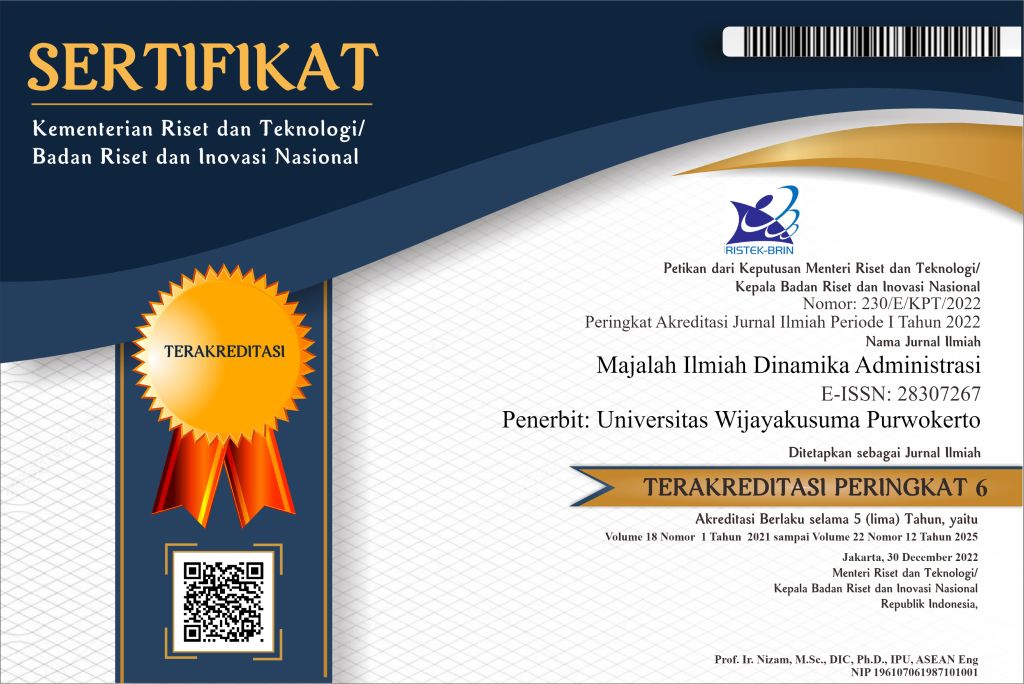IMPLEMENTASI PELAYANAN HAK ASIMILASI DI RUMAH BAGI NARAPIDANA PADA MASA PANDEMI COVID-19 DI LAPAS KELAS IIA PURWOKERTO
Abstract
This study aims to describe and explain the implementation of assimilation rights services at home for prisoners during the Covid-19 Pandemic in Class IIA Prison Purwokerto, Banyumas Regency. This research was conducted in Class IIA Prison, Purwokerto, Sokaraja District, Banyumas Regency. The method of this research is descriptive qualitative. Informants were determined by purposive sampling method. The analysis of research results using an interactive analysis model. Based on the results of the study indicate that the size and purpose of the policy, the granting of prisoners' rights in the Class IIA Purwokerto Prison is in accordance with the legislation, the guidance carried out at the Class IIA Purwokerto Prison aims to return prisoners to the community environment by providing life provisions, there are many activities personality and skill development that can be followed by inmates at the Class IIA Purwokerto Prison. Resources, services that are provided immediately, accurately and satisfactorily, such as punctuality, speed and accuracy in the service of prisoners' rights, in the implementation of prisoner development there are facilities and infrastructure to support prisoners' activities. Characteristics of implementing agents/agencies, In the assimilation policy at home during the covid-19 pandemic which was carried out at the Class IIA Purwokerto Prison, the implementing agents involved included correctional guardians, BAPAS, prisoners and third parties. There is well-established communication so that the implementation of the right of assimilation is timely, there is cooperation with partners in the implementation of skills development for prisoners. Attitudes/tendencies of the implementers, the implementation of home assimilation program policies during the covid-19 pandemic, there is no rejection from the Class IIA Purwokerto Penitentiary and prisoners, officers provide coaching with persuasive methods, the absence of recidivists is an indicator of the success of the assimilation program. Communication between organizations and implementing activities, in carrying out assimilation at home during the covid-19 pandemic, prisoners are required to take part in coaching activities carried out in prisons, there is cooperation with related parties to make the home assimilation program successful during the covid-19 pandemic. Economic environment , social, and political, there are internal obstacles so that the service process for the rights of prisoners is hampered.
Keywords; COVID-19, Home Assimilation for Prisoners, Policy Implementation.
Keywords; COVID-19, Home Assimilation for Prisoners, Policy Implementation.
Full Text:
PDFDOI: https://doi.org/10.56681/da.v19i2.59
Article Metrics
Abstract view : 146 timesPDF - 83 times
Refbacks
- There are currently no refbacks.
Majalah Ilmiah Dinamika Administrasi (MIDA) Fakultas Ilmu Sosial dan Politik Universitas Wijayakusuma Purwokerto








